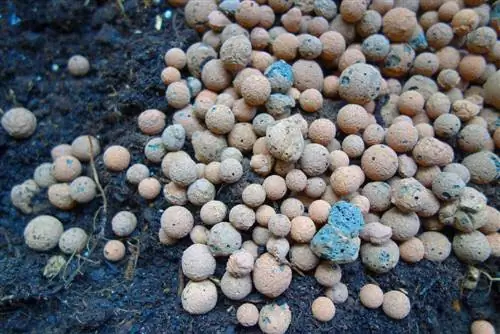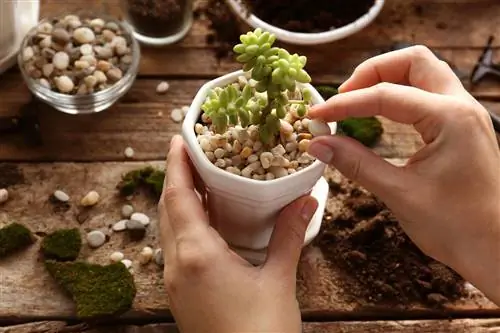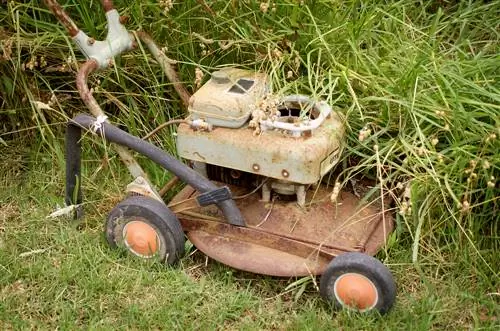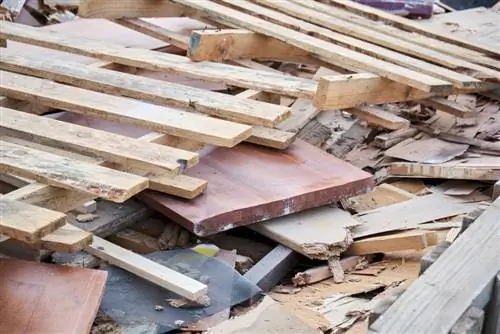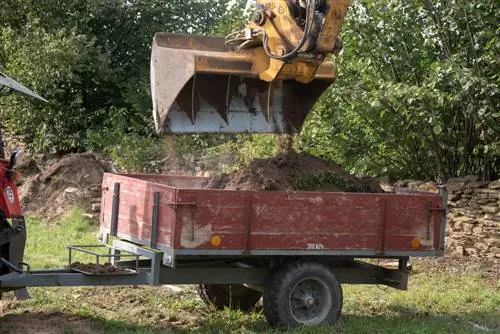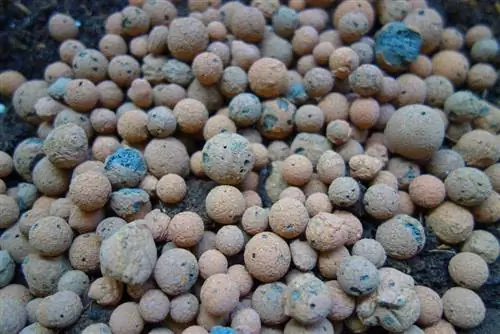- Author admin [email protected].
- Public 2023-12-16 16:46.
- Last modified 2025-01-23 11:22.
The porous clay granules have numerous positive properties and are therefore extremely popular in plant breeding. If the beads are no longer of any use, many hobby gardeners are faced with the question of how to dispose of them correctly.
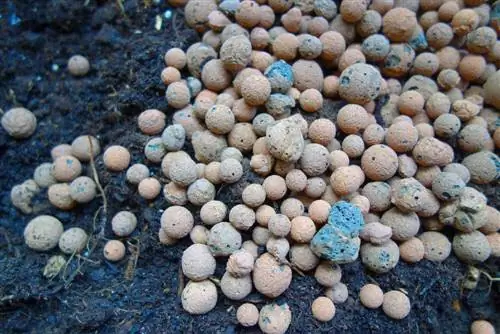
How do I dispose of expanded clay correctly?
Dispose of expanded clay: Small amounts of the porous granules can be disposed of with residual waste, while larger amounts are considered building rubble. Uncontaminated expanded clay from hydroponics can even be added to the compost.
This is how you can dispose of expanded clay:
- Residual waste: if it is small amounts
- Construction rubble: for large quantities that arise, for example, during renovation work
- Compost: ideal for granules from your own hydroponics
Residual waste
If there are normal household quantities of clay granules that you no longer wish to use, you can dispose of the material in the waste bin provided. This waste is then thermally recycled.
Construction rubble
Expanded clay is occasionally used as an insulating material, which offers protection from heat and noise and has a positive influence on the indoor climate. If expanded clay beads are produced during renovation work on buildings, these residues can be disposed of as building rubble.
This includes mineral products that are not contaminated. The granules are considered environmentally neutral and can be recycled without any problems. Cleaned clay balls serve as a basis for lightweight concrete or act as a binding element in cement. In road construction they provide a filling material.
Costs
Many recycling centers accept small quantities of expanded clay up to 0.1 cubic meters (equivalent to 100 liters) free of charge. In Munich, a flat fee of 18 euros is charged for mineral waste up to 200 kilograms. This may vary in other regions and cities, so you should check with the recycling plant in your area beforehand.
Be careful with contamination
It may happen that expanded clay is not the sole building material. Paints, varnishes and resins used in the construction industry can adhere to the beads. Then there is a risk that chemical residues will be deposited in the pores. If in doubt, you should ask at your local recycling center.
Compost
Although the clay granules are not biodegradable, they can easily be mixed into the compost as a natural substrate. It remains in the soil and then provides a loose structure in beds. The beads also increase the water storage capacity of the subsoil without causing waterlogging.
Tip
Adhesion of small amounts of expanded clay to roots is not a problem in composting plants. Therefore, you can easily dispose of them in the organic waste bin.

